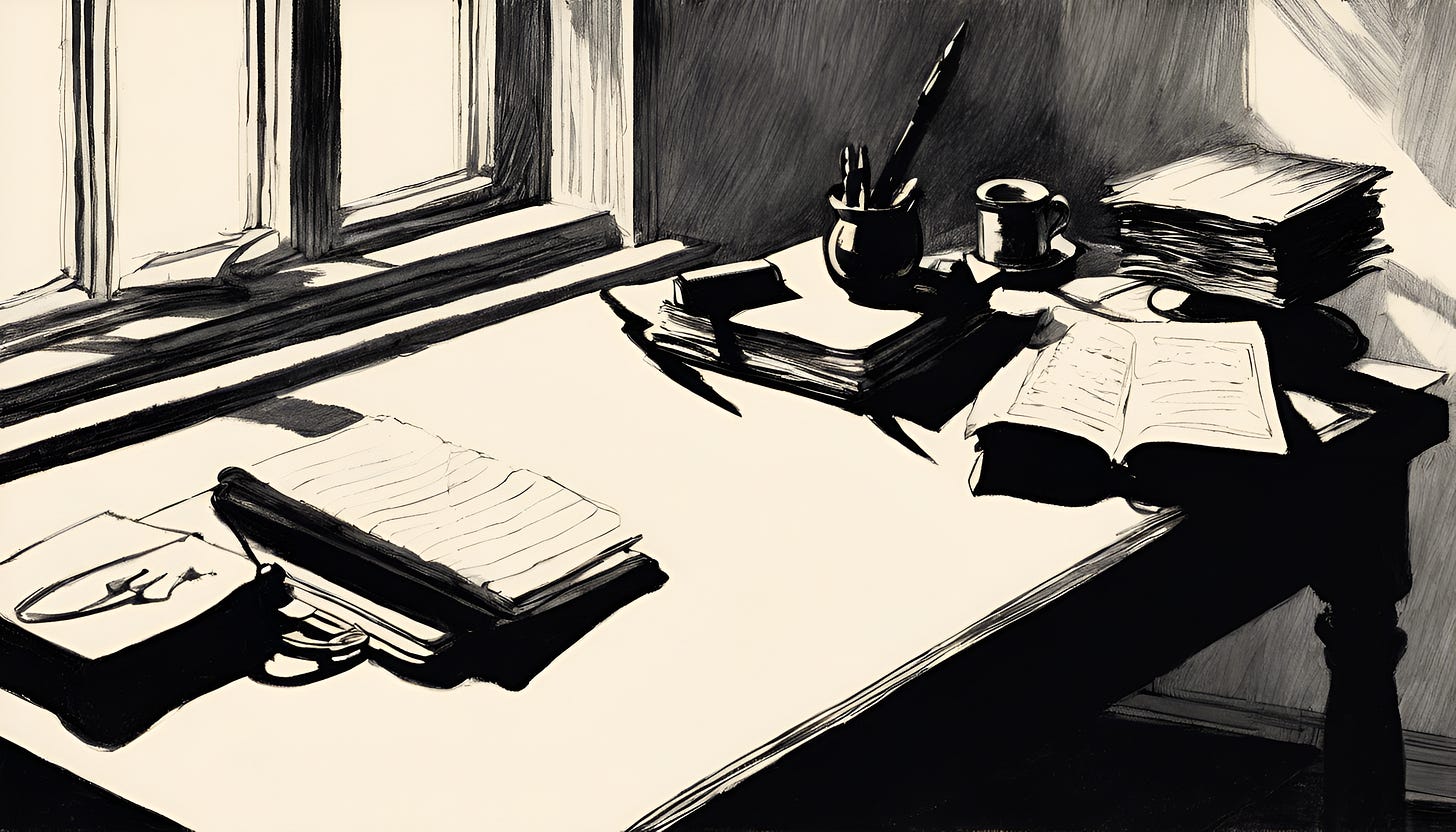If I had to describe myself in one word, I would say that I am a dreamer. This is not a good thing. Apart from sleeping, the one activity I have most indulged in is day-dreaming. For years, I defined my life according to goals that I would achieve one day — writing that book, making that movie, winning that prize. The here-and-now was mundane — the prospect of what lay at the end of the rainbow mattered more than the present beauty of the rainbow itself.
As the years passed, whooshing by like deadlines, I realised that I’d gotten the whole game wrong. Thinking of life in terms of what we achieve is the route to unhappiness and constant frustration. We should, instead, think of it in terms of what we do with our time — and not the desired outcome of that doing.
This sentence by Annie Dillard is one of my favourite quotes:
How we spend our days is, of course, how we spend our lives.
I’ve brought this up in a few recent episodes of The Seen and the Unseen and asked my guests how they spend their days. To me, this is the key to happiness.
Our life is an accumulation of days. It amounts to how we spend the days we have left — and how present we are in each moment. We need to take joy in the small happinesses that surround us. We need to be intentional about relationships, work and leisure. We need to stop worrying about the future, lest it one day become a present with a worried past.
I am not giving advice here, but sharing how I have come to feel about life. I elaborated on this a bit in episode 30 of Everything is Everything, which is about getting rid of clutter — not in our rooms, but in our minds, and in our lives.
Here is that episode, do watch it!
Declutter | Episode 30 | Everything is Everything
This was our first episode outdoors. We shot five episodes at the start of the year, and three of them were in outdoor locations. The next couple of episodes are epic deep dives — but this one was gentler and more introspective. If you like it, please like, share, subscribe on YouTube!
Never Practice. Only Play
Yesterday I came across this lovely interview of Victor Wooten, the great bassist, in which he said that he has never practised in his life.
I don’t know any kid that likes to practice. And I was one. You know, kids like to do it. They want to play, not practice playing. No kid wants to practice video games. They want to play, you know.
So music was that way for me. I’ve never enjoyed practice.
Let’s say I want to learn to speak English — and I admire you because you speak so well. And I say, ‘Wow, when you were growing up, what did you practice?’ You know, speaking it. You did it! You just spoke! And you were never not allowed to participate. No one made you practice. No one said you have to learn these words first. Got to say your ABCs or your scales over and over. No one ever did that.
This resonates with me so much, because whenever I got good at something in my life — writing, podcasting, poker — it was because I just loved it! I loved doing it, so I dived into it, and did it more and more. In hindsight, that is practice. But it begins with love.
Of course I wish I had been more intentional about this process of learning. Of course I wish I had worked harder. But when I did work at the things I loved, it did not feel like drudgery.
Sometimes the doing is hard — but there is the joy of having done. And the doing also gets a little easier the next time because of the hard yards you already put in — while having fun.
This, by the way, is the nuance I’d like to add to all the mockery Narayana Murthy got for saying that he worked 70 hours a week. No one should work 70 hours a week at a job that is drudgery. But everyone who has achieved excellence has worked 70 hours a week mastering their craft. They may not call it work — it might even have seemed like play to them — but they put in the time. The only route to excellence is putting in the hours.
If you have a boring job as a code coolie or an office clerk, then sure, the meaning in your life comes from what you do outside work. 70 hours is crazy. But if you’re working above the API, then you’ll find yourself putting in those hours and enjoying it and loving it and thanking your lucky stars you have that much time to give.
And there you have it — a hint at why I will be more regular with this newsletter in 2024. See you next week!
***
Illlustrations by Simahina.
***





I love what Victor Wooten has to say about children and practice. I have been working on some research on designing cities for children and the most amazing part of the study was how children see the world. I wish we could take a few tips there. We would then design happy cities :)
What a simple and powerful thought! Enjoyed reading this :)